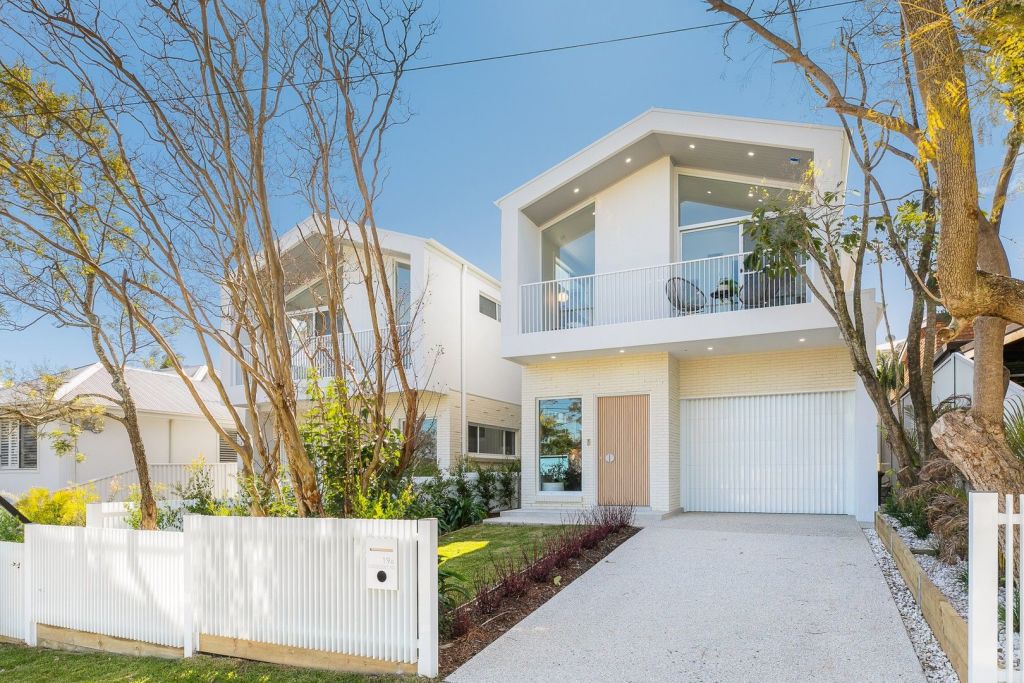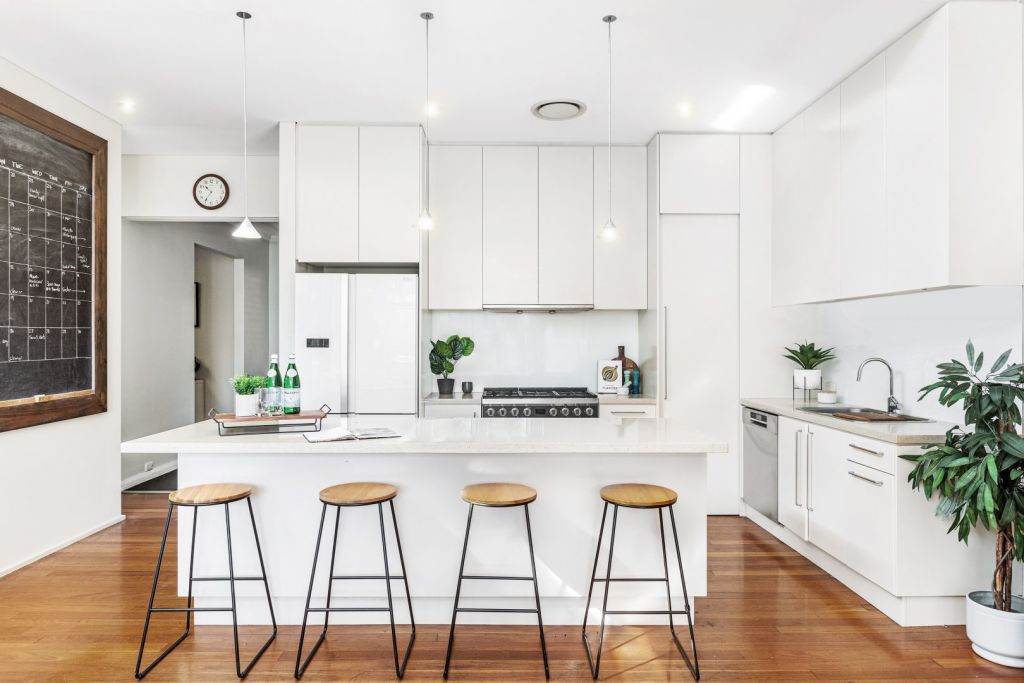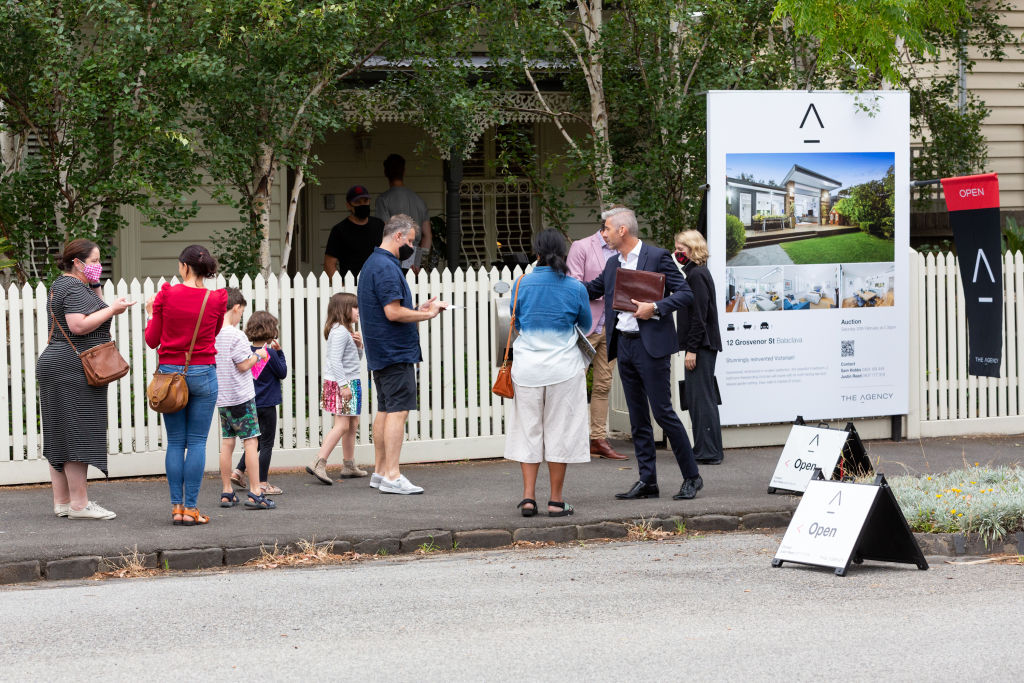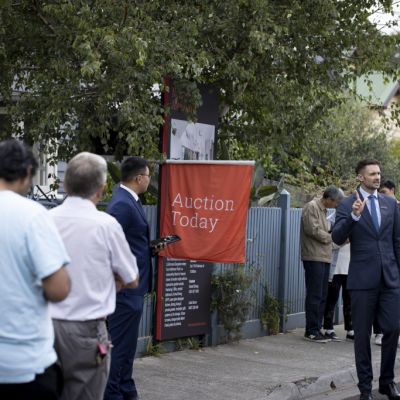How to make your home sell for the highest price regardless of what the property market is actually doing

It’s not always possible to time the sale of your home with the peak of the property market, but what you can control is how your home is presented to ensure it appeals to the biggest pool of buyers.
If you’re planning to sell your property – perhaps because you need a larger home, you’re moving for work or chasing a tree change, or you want to reduce your mortgage load in the wake of rising interest rates – there are ways to maximise your sale price, regardless of the market phase.
Know your target market
It’s critical to research what’s happening in your area before you list, says renovating expert and founder of refurb2invest.com.au Corissa Sorbello.
“You want to find out what’s on the market right now, what has sold recently, what’s renovated and what’s unrenovated,” she says. “If you don’t already have an agent, speak to at least three agents”

“One of the most important questions is to ask who is the type of buyer that is potentially going to be attracted to this home? What’s the culture, what’s the demographic, what’s the age, are they families or couples, do they have young kids or older kids? Are they more senior? What nationality is more common in that area?
“When you understand who your buyers are, you can then start understanding what that type of buyer is looking for. You need to step into their shoes, detach from the property being your home and think of it as a business transaction.”
Perfect your presentation
Buyers are shopping around and doing months’ of research before buying, says principal of Ray White Quakers Hill and award-winning agent Josh Tesolin. They quickly learn to sort the good from the bad and a poorly-presented property can be an instant turn-off.
“Houses presented well tug on the emotional connection with the buyer to the home,” he says. “If it presents badly it’s forgotten. If it’s presented well, it’s memorable.”
It’s in the vendor’s best interest to present the home in the best possible condition, says Belle Property Dromana principal Grant McConnell.
“Most of the time when I go through a property, the vendor will ask if I can see anything that can be done to improve presentation,” he says. “The home might need decluttering, or some are vacant and you get it styled.”
McConnell says it’s fine to move belongings into the garage if there’s enough space, or ask a friend or family member for a short-term favour.
In a soft market, it can pay for vendors to go a step further and tackle overdue renovations.

Sorbello says it’s not uncommon for vendors to baulk at what they perceive to be expensive refurbishments, but it may cost them more in a reduced sale price if they do nothing.
“If a buyer goes into an unrenovated property and they’ve got no experience renovating, or they don’t have the funds or time or capacity to renovate, then they’ll be thinking about all the money they’ll need to spend,” she explains. “So, they’ll be more attracted to a property that’s ready to go straight into.”
Sorbello says if a home owner doesn’t have the time or money for a full renovation there are less expensive ways to refresh a property and inject value.
“It’s about understanding your uplift potential: what’s it worth now unrenovated, and what’s it worth if you [renovated] in the most strategic way?” she says.
Sorbello regularly updates kitchens and bathrooms on small budgets, and says vendors shouldn’t underestimate the impact of new door fittings, a benchtop change or a neutral coat of paint.
Choose the right real estate agent
When stock is tight and the market is flat, less experienced agents may try to flatter vendors into listing with them, says vendor advisor, buyers’ agent, podcast host and TV presenter Veronica Morgan.
“The temptation for the owner is to go with the agent that ‘believes in my property and thinks it’s worth more’,” she says. “But that is not going to translate to the best buyer getting the best results.”
Morgan says agents and vendors both need to be realistic about a property’s shortcomings and about price expectations.
“Choose an agent with the runs on the board, someone who has been around the racetrack a few times and will tell you the tough stuff,” she advises. “Someone who will have the hard conversations with you early because it’s those properties that are priced spot-on and presented in a way that goes towards mitigating any shortcomings that still sell.”

Morgan suggests going to open homes in “secret shopper” mode to get a feel for an agent’s approach.
“You’ve got to listen to the conversations they’re having with buyers and really be quite critical about their behaviour,” she says. “See how they follow you up. See how they converse and make your own mind up about their professionalism and the way in which they represent their vendors.”
Get your price right
McConnell says when priced correctly, every property can find a buyer, even in a downturn.
While he acknowledges the difficulty of pricing property in a changing market, he says the best approach is to use the most recent comparable sales.
“There’s no point going back six months because that’s irrelevant now,” he says.
Don’t skimp on marketing
Tesolin says a market downturn is no excuse not to market hard across all platforms.
“Many people try to save $2000 on marketing and that costs them $20,000 on the sale price by not meeting all potential buyers,” he says.
There’s a tendency among vendors selling in a downturn to test the waters with a “soft” campaign by listing off-market, but keeping a campaign quiet does nothing to create competition and it’s competition that pushes prices up.
And the longer your home sits on the market, says Tesolin, the less it’s likely to be worth.
Sorbello agrees.
“Every day a home sits on the market it gets more stale,” she says. “If you’ve got a buyer who’s continuously checking the market and they’re seeing a property just sitting there and other stock is selling faster, there are two questions they’ll ask: is there a problem with the home or are they asking too much?”
Sell well in any market
For home owners still not sure whether they’re ready to list, Morgan says it pays to remember that anyone with the kind of home that is “always hot” should be able to sell well regardless of market conditions.
“Some properties will still be competitive, even when the market is falling,” she says. “So, if you have a level block of land, a north-facing garden, a house that really doesn’t need work that flows well with well-proportioned bedrooms and living spaces … they’re the sorts of properties that are still rare, even in a buyer’s market. And buyers will pay a premium for that even now.”
We recommend
States
Capital Cities
Capital Cities - Rentals
Popular Areas
Allhomes
More










